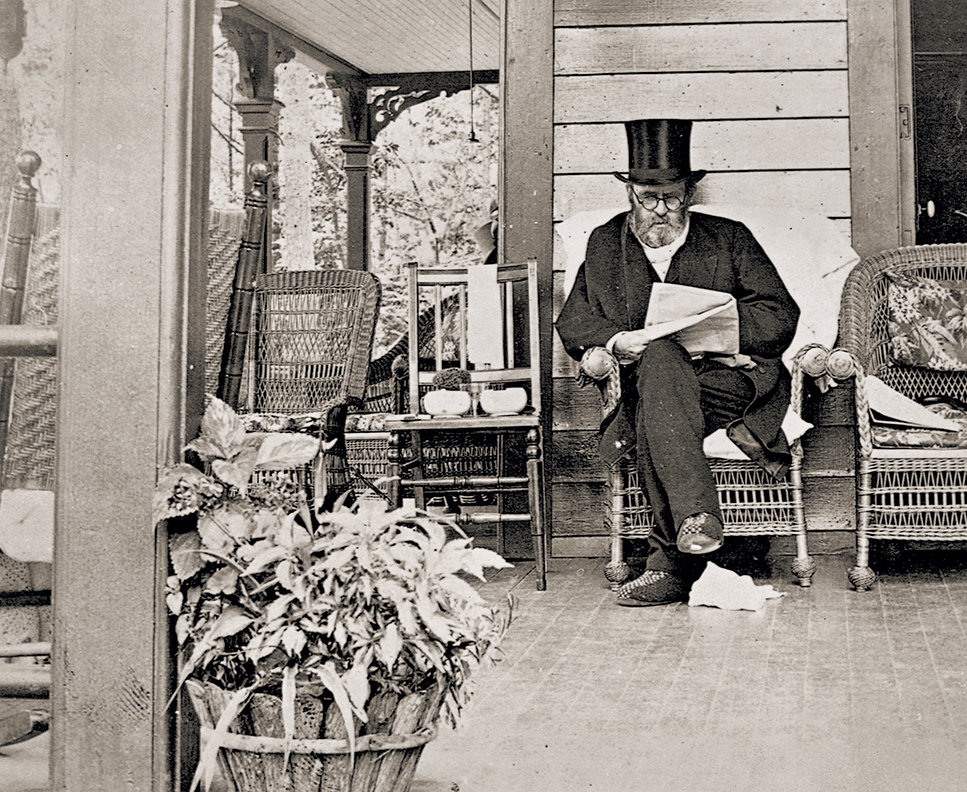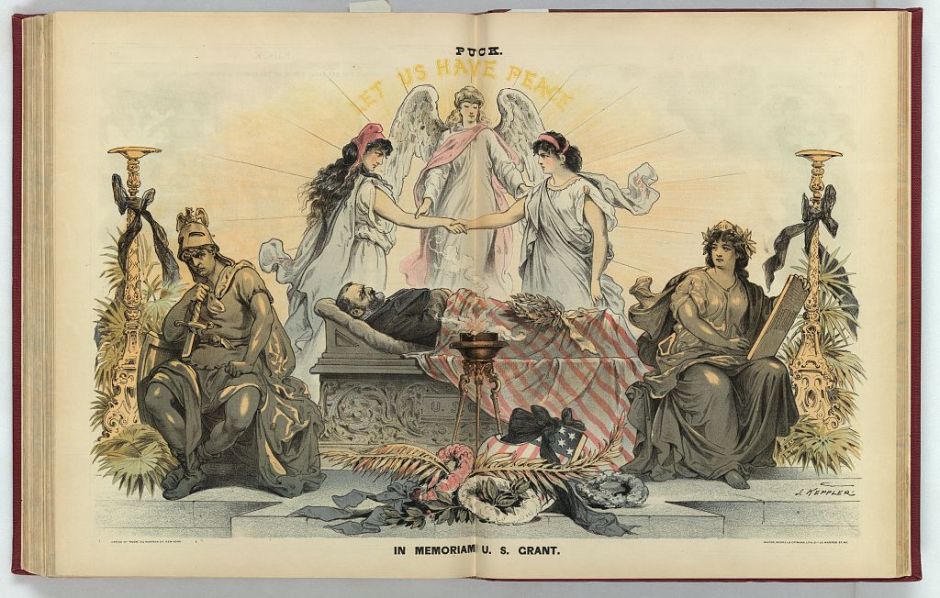“The greatest man I have ever had the privilege of knowing personally. And I have not known a man with a kinder nature or a purer character.” – Mark Twain.
So said Twain upon learning of the death of his friend Ulysses S. Grant on July 23, 1885 – 138 years ago next week. Grant, the nation’s 18th president and victorious Civil War general, died of throat cancer at the age of 63.

The final years of Grant’s life were filled with hardship. After retiring from the Presidency, he unwisely invested in a scandal-prone financial firm which eventually went bankrupt, leaving him destitute. About that time, he also learned he had throat cancer. In order to earn enough money for his wife Julia to live on, he decided to write his personal memoirs, hoping that proceeds from the book’s sales would support his family after his death. His writing chronicled his life as a soldier, from his early dates at West point to his service as general-in-chief of all Union armies.
As Grant’s memoirs progressed, so too did his cancer. Racing against death, he kept writing despite debilitating pain and weakness. He was encouraged by Twain, who offered him a generous publishing contract. Just three days after completing the last page, Ulysses Grant died. America mourned – his funeral in New York City was attended by 1½ million people.

Twain published Grant’s memoirs the same year he died. They became an instant best-seller and proved a literary and financial success. Julia Grant received royalties that totaled $450,000, roughly equivalent to more than $14 million today.
To learn more about Grant’s life, death, and legacy, we encourage you to visit our partner park Ulysses S. Grant National Historic Site. While you’re there, be sure to pick up your own copy of the Personal Memoirs of Ulysses S. Grant at our bookstore, or order it online.

